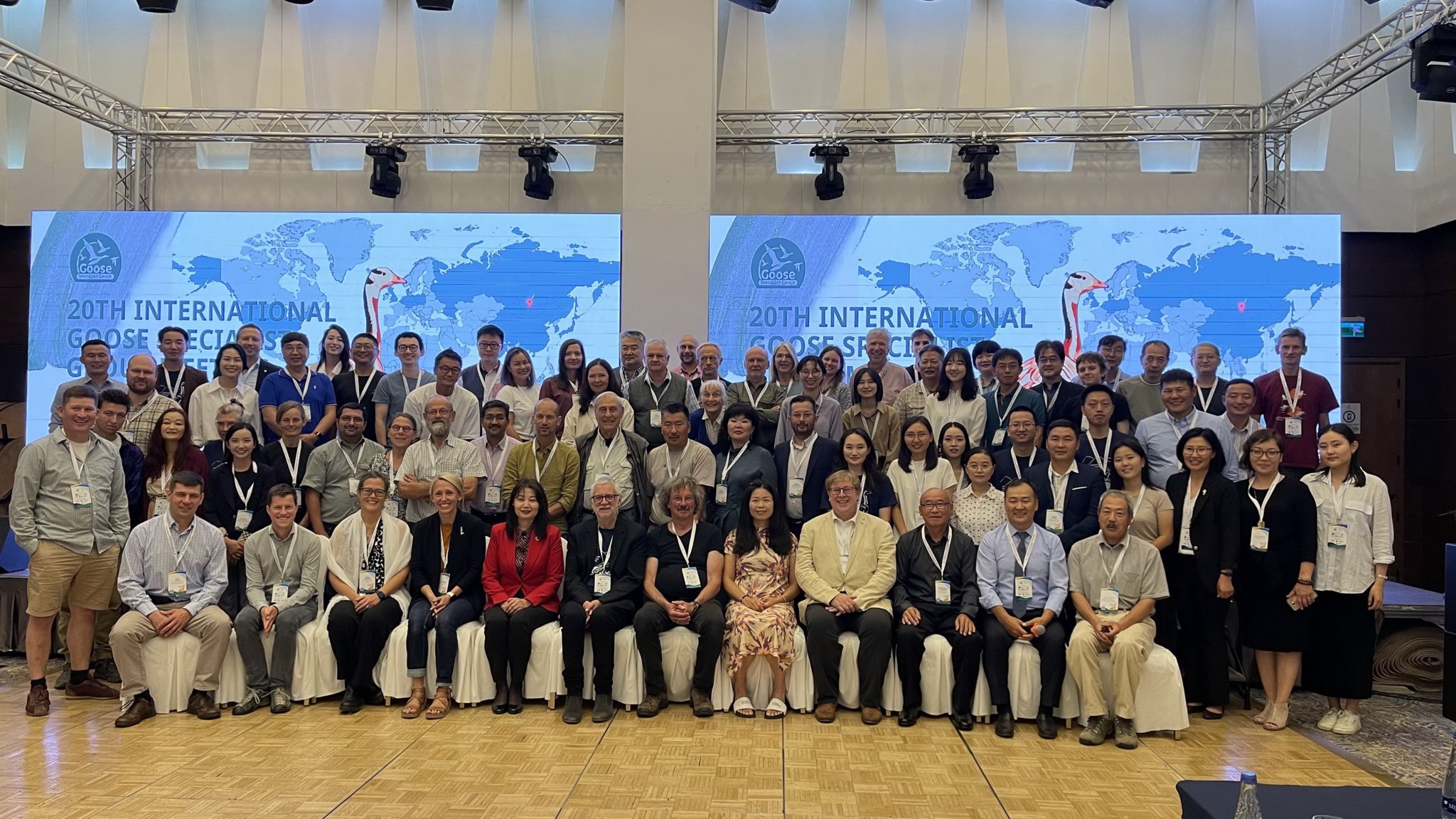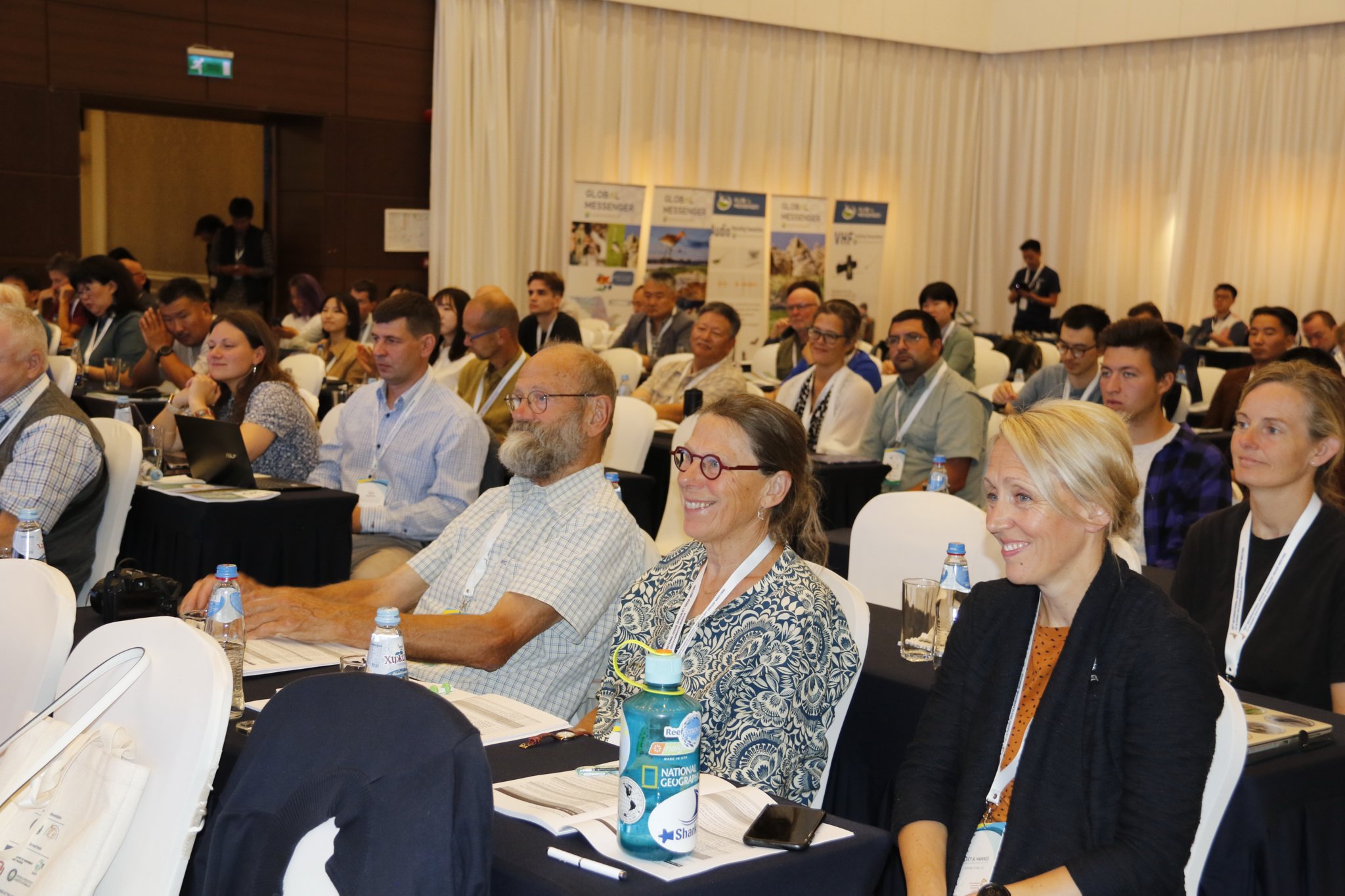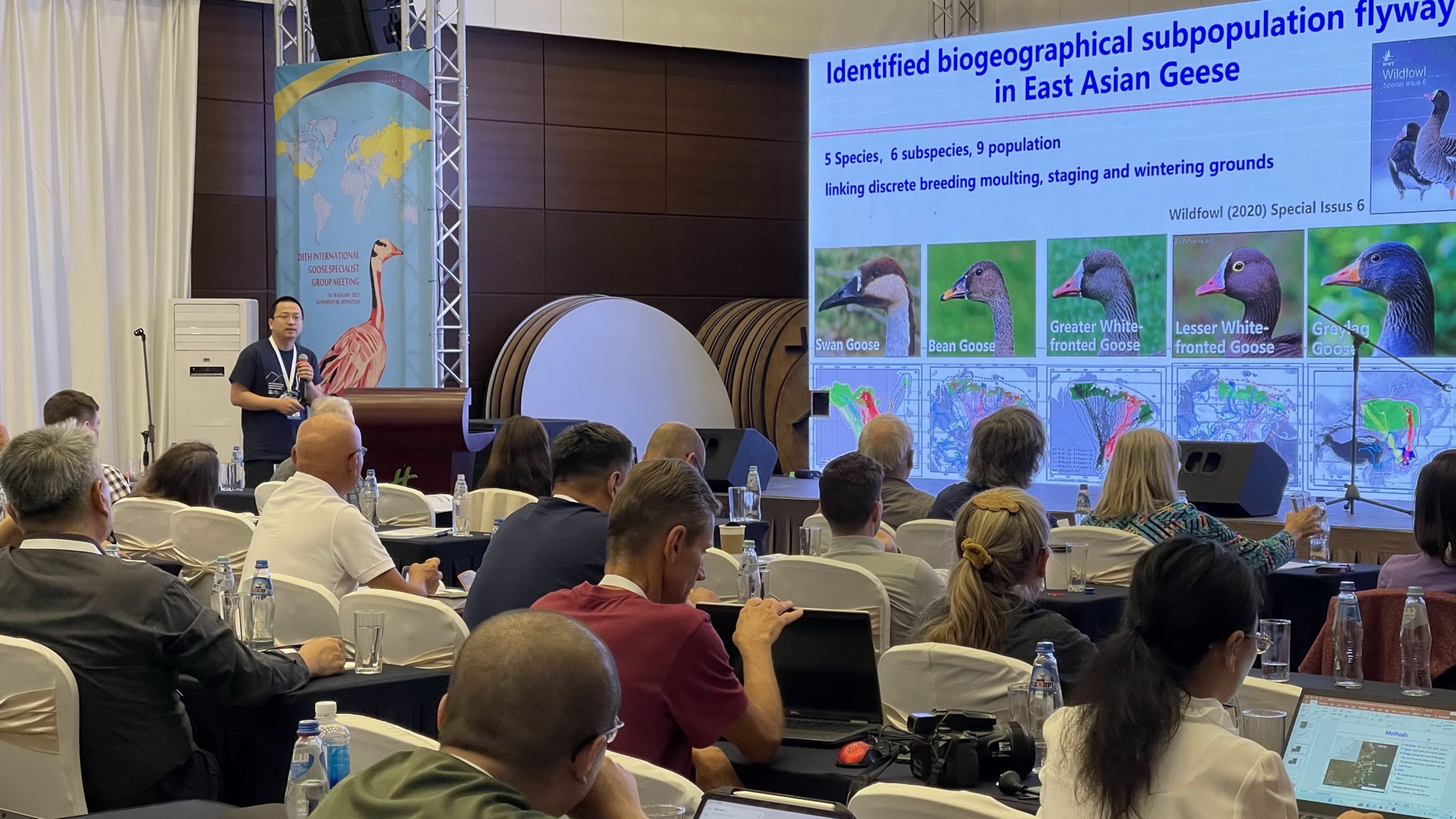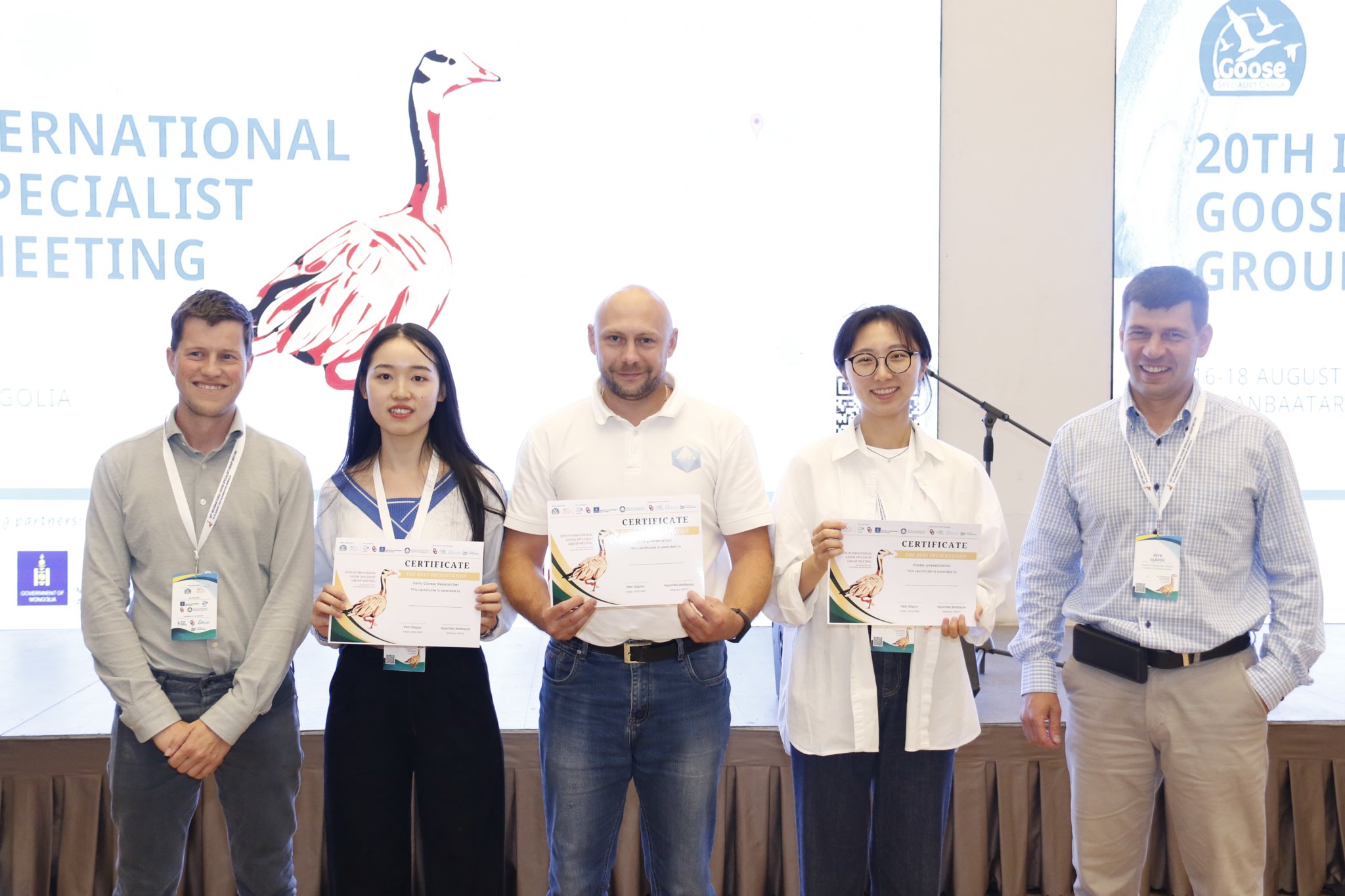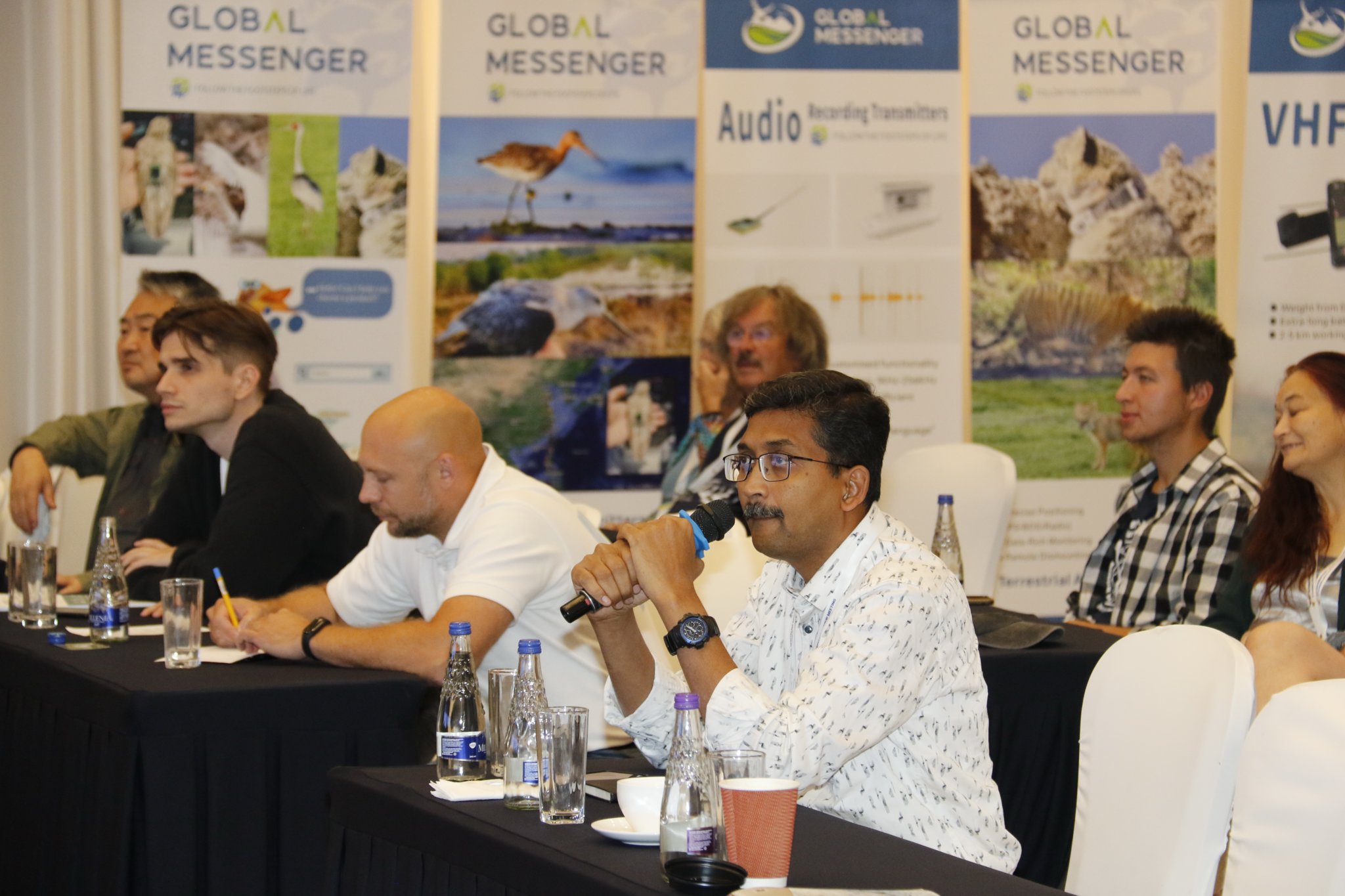Experts on geese from around the world convene in Mongolia
Scientists specialized in goose ecology from Asia, Europe, and North America gathered in Mongolia for the 20th meeting of the Goose Specialist Group of IUCN Species Survival Commission. It was an important international meeting to provide a platform for researchers to discuss scientific questions concerning geese, to identify new approaches towards species and habitat conservation, and to promote strong international collaboration.
About 100 scientists from 14 countries specialized in goose ecology from Asia, Europe, and North America gathered in Ulaanbaatar, Mongolia, between 16 and 18 August 2023, for the 20th meeting of the Goose Specialist Group of IUCN Species Survival Commission. It was an important international meeting to provide a platform for researchers to discuss scientific questions concerning geese, to identify new approaches towards species and habitat conservation, and to promote strong international collaboration. The meeting theme was “Science. Cooperation. Conservation. For better understanding and protecting goose populations across the northern Hemisphere”.
Prior to the GSG Meeting, there was a workshop hosted by the Hanns Seidel Foundation and the Wildlife Science and Conservation Centre of Mongolia. Participants of this workshop discussed about the developments of the Central Asian Flyway Initiative, which will link range states within the flyway to support conservation actions for migratory species.
Mongolia is also the home of breeding swan geese, bar-headed geese, and other goose species migrating within the East Asia-Australasian Flyway and the Central Asian Flyway. Specialists from China, Russia, Korea and Japan presented new data on populations of geese within these flyways. Their findings showed a mixed picture, with some strong population growth in species that can feed on farmland, while species reliant on natural habitats still appear very vulnerable.
At the last day of the conference, the important topic of avian Influenza and other infectious diseases among geese populations across the globe was discussed. Diseases such as high-pathogenic avian influenza can be spread between countries by the linkages created by migratory waterfowl. At the same time, the keynote presentation by Dr. Diann Prosser from US Geological Survey in USA and other presentations underlined that transport of domestic birds is likely to be as important or more important for the spread of avian influenza, yet this is challenging to study. In the most recent years, migratory waterfowl more and more seem to become victims of high-pathogenic influenza, with large losses in several populations of geese, pelicans, seabirds and cranes. The most critical challenge appears to be the monitoring of the spread of high-pathogenic avian influenza, and several examples of detailed avian influenza surveillance and monitoring programs in Asia, Russia, America and Europe were discussed.
The 20th meeting of the Goose Specialist Group was an important stimulant for developing protection and monitoring of waterfowl in the Central and East Asian flyways, as well as international collaboration in research on avian influenza and other topics concerning goose ecology. The countries present in this meeting were Belgium, China, Czech Republic, Denmark, Germany, India, Japan, Mongolia, Netherlands, Poland, Russia, South Korea, United Kingdom, and United States.
Within the framework of the conference, the conference participants were awarded in nominations for the most interesting presentation, poster and the most promising young scientists. It was noticeable that many young scientists took an active part in the conference and joined the ranks of the group.
The meeting was hosted by the Wildlife Science and Conservation Centre of Mongolia and the IUCN Goose Specialist Group in partnership with the Ministry of Environment and Tourism of Mongolia, East Asia-Australasian Flyway Partnership, University of Oklahoma, and the Institute of Biology, Mongolian Academy of Sciences, and with financial support from the Hanns Seidel Foundation, University of Oklahoma, Druid Technologies, and the Global Messenger.

